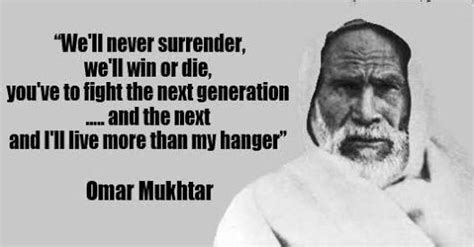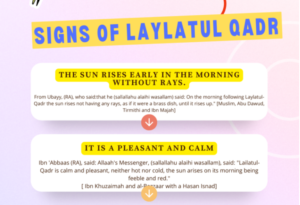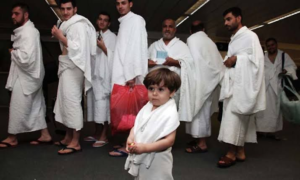Remembering Lion of the Desert: Omar Mukhtar – 88 years of Martyrdom
On 16th September 1931 Omar Mukhtar (rahimahullāh) was executed and hanged to martyrdom by Italian colonial forces at the age of 73. He is still remebered as Lion of the Desert, as Libya’s iconic resistance leader who spent the last 20 years of his life fighting the fascist Italian occupation of his country.
It is important that young Muslims revisit the life and thoughts of these great exemplars to gain confidence and to unite to free themselves and the ummah from the grip of the enduring imperialism and coloniality by being upholders of justice and speaking truth to power.
Who was Omar Mukhtar?
Omar Mukhtar was known for applying justice and holding to the principles of Islam. During one incident Omar Mukhtar, protected two surviving Italian prisoners, stating that “We do not kill prisoners”. His fellow warrior said “They do it to us.” To which he responded with these majestic words: “They are not our teachers.”
Omar Mukhtar was born in the year 1858 in an impoverished household in the region of Cyrenaica which was under the control of the Ottoman Empire. As a young individual Omar lost his father and spent much of his youth in poverty. He was taken under the care and guidance of one of the Mashayakh in his home town.
Omar was known to have developed a lifestyle of not sleeping more than three hours every night in order to worship Allah (subḥānahu wa taʿālā) at the last third of the night and to then recite Qur’an until Fajr. He had memorised the Qur’ān in its entirety and was known as a humble and deeply religious man. He was reported to have completed the recitation of the Qur’ān in its entirety every seven days, irrespective of the trials and tribulations he faced in his life. His wisdom and courage was one that was evident in his life, and as such an example for people to learn and follow.
A teacher of the Qur’an by profession, Mukhtar was also skilled in the strategies and tactics of desert warfare. He knew local geography well and used that knowledge to advantage in battles against the Italians, who were unaccustomed to desert warfare. Mukhtar repeatedly led his small, highly alert groups in successful attacks against the Italians, after which they would fade back into the desert terrain. Mukhtar’s men skilfully attacked outposts, ambushed troops, and cut lines of supply and communication. The Regio Esercito (Italian Royal Army) was left astonished and embarrassed by his guerrilla tactics.
After 20 years of resisting and inflicting severe defeats and setbacks to their unwanted European invaders, Allāh sought to elevate Omar’s rank in the hereafter and immortalise his heroic status in this earthly life when He, in His wisdom permitted that Omar be captured and wounded by Italian colonial forces in 1931. In captivity, Omar was made lucrative offers by the Italians to end the resistance to which he responded that he would not cease to resist
“until I achieve one of the two highest levels; martyrdom or victory. And I swear by Him who knows what is in men’s hearts that if my hands were not bound this very moment, I would fight you with my bare hands, old and broken as I am.” (Ref :Omar al-Mukhtar : The Italian Reconquest of Libya (1986) by Enzo Santarelli, Giorgio Rochat, Romain Rainero and Luigi Goglia, as translated by John Gilbert)
Legacy of Omar Mukhtar
- Omar Al-Mukhtar University was founded in 1961.
- Since 1971, Mukhtar’s face has appeared on the Libyan ten-dinar note.
- His final years were depicted in the movie Lion of the Desert (1981),
- A statement by the man used in the movie captured the tongues and ears of millions of Muslims, نحن قوم لا نستسلم ، ننتصر أو نموت. ..”We are a nation that knows no surrender, we win or we die.”
- 2009, Libyan leader Muammar Gaddafi wore a photograph of Mukhtar in Italian captivity on his chest while on a state visit to Rome, and brought along Mukhtar’s elderly son during the visit.
- With the Libyan Civil War beginning 17 February 2011, Omar Mukhtar again became a symbol for a united, free Libya and his picture is depicted on various flags and posters of the Free Libya movement. Rebel forces named one of their brigades the “Omar Mukhtar brigade” after him.
- A masjid is named after Mukhtar in Tampa, Florida, USA, known as Masji dOmar Al Mokhtar.
Streets named after Omar Mukhtar
- Kuwait City, Kuwait (Omar Al-Mukhtar street)
- Gaza City (Omar Mukhtar Street )
- Cairo, Egypt (Omar Al Mukhtar Street)
- West Bay area of Doha, Qatar (Omar Al Mukhtar Street)
- Bizerta, Tunisia
- Riyadh, Saudi Arabia (Omar Al Mukhtar Road)
- Irbed, Jordan
Ref : Wikepedia , Omar al-Mukhtar : The Italian Reconquest of Libya (1986) by Enzo Santarelli, Giorgio Rochat, Romain Rainero and Luigi Goglia, as translated by John Gilbert),islam21c
There are even movies made on his life. I haven’t watched the movie but if you are interested in knowing more about him you can go ahead and watch the movie.
Discover more from Islam Hashtag
Subscribe to get the latest posts sent to your email.






This is very lovely site.I also use it.
I have just come across this site and what a treasure it is! JazakAllahu khairan for all the work put it, it is really appreciated.
Thanks for sharing this article, I really impress your work.
Thanks for sharing such nice blog for everyone.
Regards,
Thanks